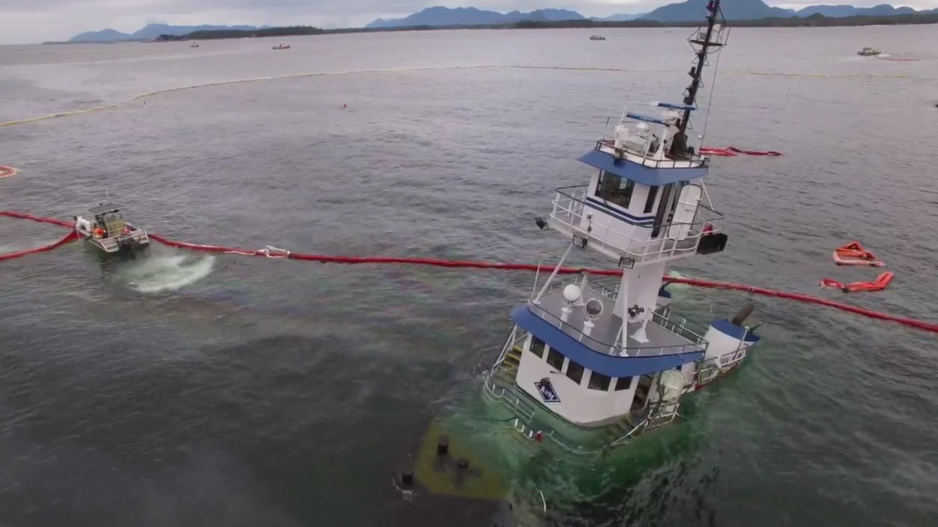The Heiltsuk First Nation of Bella Bella are nowhere near the Trans Mountain pipeline or its terminal.
But should there ever be an oil tanker spill off the coast of B.C., the First Nation could be on the front lines, and they want to be prepared.
The Bella Bella First Nation has therefore positioned itself to be both prepared for and indirectly benefit from the project through the creation of a new marine emergency response service.
The Heiltsuk has partnered with Nova Scotia company Horizon Maritime Services Ltd. to create Heiltsuk Horizon Maritime Service Ltd., which hopes to win a contract through the $1.5 billion Oceans Protection Plan to provide a maritime emergency response service.
The partnership has submitted a bid, following a call for proposals from the federal government, to supply two large tow vessels, which would be used to tow ships that lose power. One would be stationed on the north coast, the other on the south coast.
Under the partnership, a new marine response centre would be established at Bella Bella, and a training program would be developed to provide a cadet training program.
Horizon has some experience with such partnerships. In Nova Scotia, the company worked with First Nations to establish a similar program.
Marilyn Slett, a Heiltsuk chief councillor, said the partnership developed in response to Nathan E. Stewart spill near Bella Bella in 2016. In that incident, a tug towing a barge ran aground, spilling 29,000 gallons of diesel.
“For us it was a logical next step after the Nathan. E. Stewart,” Slett said.
The idea behind the partnership would be both to provide better coastal protection, as well as job training for locals interested in careers in the maritime sector.
It’s not clear whether the RFP for the two tow vessels will be awarded, if Kinder Morgan Canada (TSX:KML) decides to cancel its $7.4 billion Trans Mountain expansion project.
The funding for two new tow vessels comes from the $1.5 billion Oceans Protection Plan. Earlier this year, Prime Minister Justin Trudeau said that that both the Oceans Protection Plan and a national carbon pricing scheme were tied to the Trans Mountain twinning project going forward.
"The only way we can get any of those things is if we do all three of those things together,” he said, according to CBC.
Slett said the Nathan E. Stewart incident shows there is a need for better maritime emergency response, regardless of whether there is increased tanker traffic, and hopes the project moves ahead, regardless of what happens with Trans Mountain.
“We see that as a good plan for the oceans, and one that we hope that the federal government will proceed with,” Slett said.
“We’ve looked at assessments of data from the Coast Guard, from the Transportation Safety Board, from Pacific Pilotage Authority, and there’s a real need for increased emergency response capacity on the central coast.”
According to their assessments, Heiltsuk Horizon Maritime Service estimates they would be responding to three incidents per month.
Slett added that the proposal fits well not only under the Oceans Protection Plan, but the Trudeau government’s efforts on reconciliation with indigenous people as well.
“There’s a lot of talk nationally around reconciliation,” she said. “This partnership is on-the-ground reconciliation between an industry partner and an indigenous community.”
The cadet training program would train people in the region and give them sea time required for various certifications, such as bridge watchman, deck hand, and engine room assistant.
Should the partnership win the contract, the two boats would need 15 mariners per shift.
“So you’re talking a total of 60 paid positions, fifteen per shift on each vessel,” said Steve Widmeyer, executive vice president of Horizon Maritime.
“Then in addition to that, the additional personnel would be those individuals that were training and developing as cadets.”
Now that the proposals have been submitted to the Coast Guard, Widmeyer said he hopes to hear a decision on who will get the contract within about 60 days.




